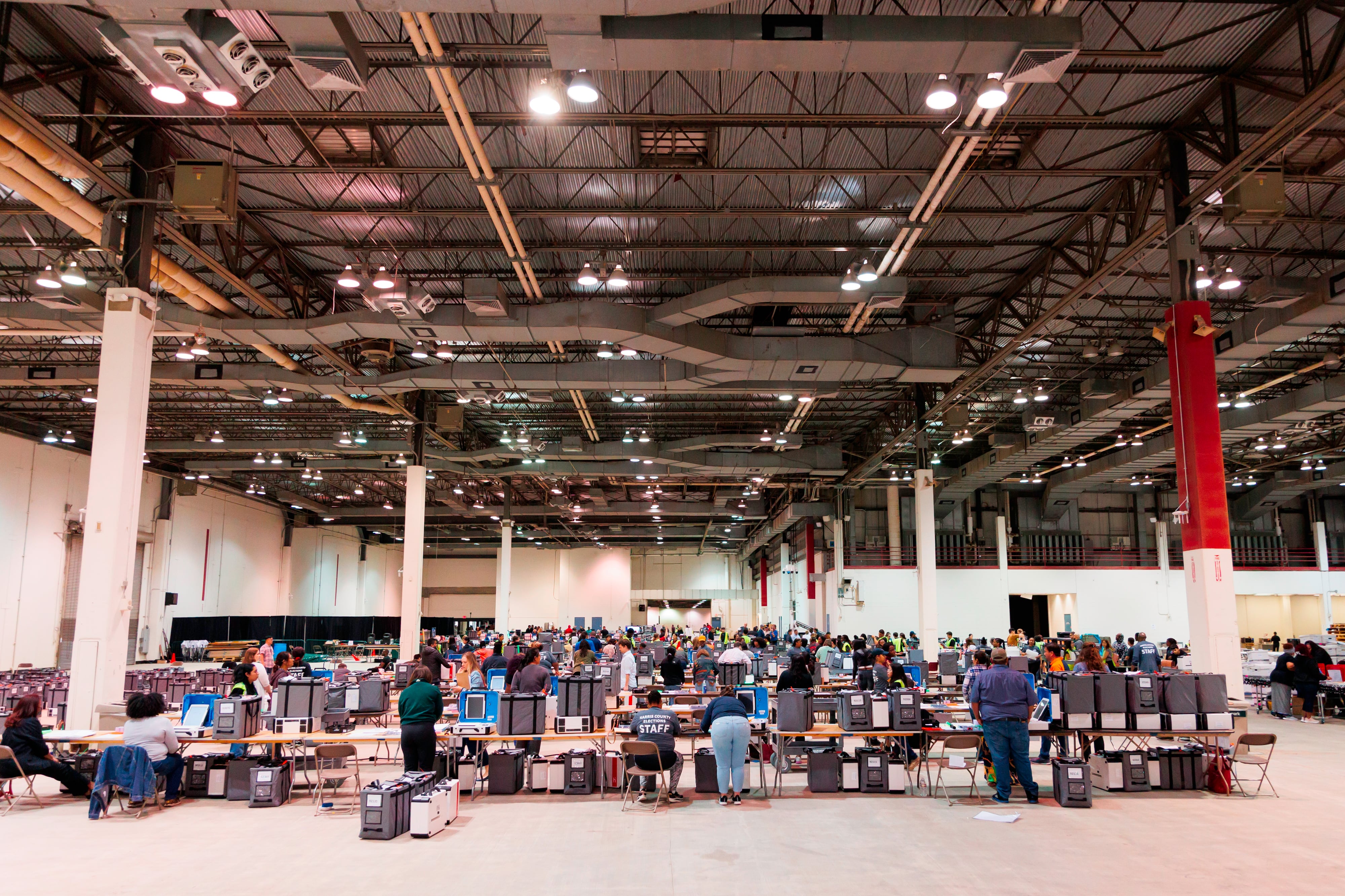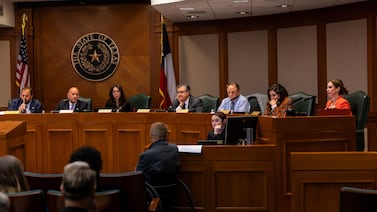Votebeat is a nonprofit news organization reporting on voting access and election administration across the U.S. Sign up for our free newsletters here.
A bill that would force Harris County to get rid of its elections administrator is closer to becoming law after the Texas House Elections Committee approved it Monday.
Senate Bill 1750 would abolish the county elections administrator position in Harris County and transfer election duties to the county clerk and tax assessor-collector. The Senate passed the bill, written by state Sen. Paul Bettencourt, a Republican, on April 18. It will now go up for debate on the House floor.
The bill was originally written to affect all counties with populations of more than 1 million residents, but it was changed to focus solely on Harris after Bettencourt’s office conducted a survey of Texas’ largest counties and found that only Harris County had continuous problems, said Rep. Briscoe Cain, who presented the House version of the bill — House Bill 3876 — in committee Thursday.
“Each election seems to bring a new and bigger election disaster than the last,” said Cain, a Republican. “Harris County leadership has done nothing to remedy this embarrassingly poor quality of operation of the elections department.”
This is one of about a dozen bills Bettencourt has proposed this session that some voting rights activists say are a political response to Harris County’s Election Day problems in the past year.
The Texas Election Code allows counties’ election commissions, based on their individual needs, to assign election duties to the county clerk and tax assessor-collector — which are elected positions — or to create an elections department and appoint a nonpartisan elections administrator.
Harris in 2020 was the last large county in Texas to create an elections department and appoint an elections administrator. Dallas County, for example, created an election administration position in the 1980s, and slightly more than half of Texas’ 254 counties currently appoint an elections administrator to run their elections.
“This takes away all of that local power and that democracy involved in the process, and it’s just a takeover of one specific county that would not actually do anything for solutions for election administration,” said Katya Ehresman, voting rights program director for Common Cause Texas.
In last November’s general election, Harris County had to extend voting for an hour after various polling places had malfunctioning voting machines, paper ballot shortages and long waiting periods. More than 20 lawsuits from losing Republican candidates have been filed against the county, citing those problems and seeking a redo of the election. Elections Administrator Clifford Tatum, the county’s second elections administrator, hired only two months before November’s election, could not say early on how many polling locations ran out of paper on Election Day or whether anyone was prevented from voting.
Tatum lacked a sophisticated tracking system that many elections administrators use to manage polling place problems across the county in real time. He has since said the county will be equipped with such a tracking system for the upcoming May 6 municipal election.
Bettencourt has said he suspects malfeasance is behind the Harris County problems and has cited a report from a Houston-based TV station that says more than 100 locations ran out of paper, disenfranchising what he says are mostly Republican voters. But a recent investigation by the Houston Chronicle found that out of the more than 782 polling locations, only about 20 ran out of paper. The newspaper found that while the areas where paper stock ran low were slightly more likely to be areas dominated by Donald Trump voters in 2020 — about 55% of the polling places — it’s impossible to tell whether that’s where those voters cast their ballots since voters in Harris County can vote anywhere in the county.
Some supporters of the bill urged members of the House Elections Committee on Thursday to return election duties to elected officials everywhere in Texas and not just in Harris County.
“These issues are going in other counties — Bexar County, Dallas County, Bell County, medium-sized counties, Gillespie County — where the elections administrators are committing what I believe to be criminal acts,” said Laura Pressley, a well-known voter fraud activist who frequently has sued counties, election administrators and the Texas secretary of state for not following the Texas Election Code as she interprets it. “And the election commission doesn’t have the political will to do something.”
More than a dozen people signed up to testify on Bettencourt’s bill Thursday. However, Texas House Elections Committee Chair Rep. Reggie Smith, a Republican, noted that no Harris County leaders testified.
“No one in leadership from Harris County came to defend themselves,” Smith said. “Not [Harris County Commissioner] Rodney Ellis, and not the [elections administrator], nobody showed up to defend them.”
Some voting rights advocates and members of the public who spoke against the bill Thursday acknowledged there have been problems with the administration of elections in Harris County in recent years, but they say Bettencourt’s bill won’t solve those problems.
“A lot of those solutions are done through investment of resources, of staff, not abolishing an office and potentially causing staff to leave or have their positions removed,” Ehresman said. “With 30 days left in session, we haven’t had any hearings or public testimony on online voter registration or high school voter registration or investments in our election administration. We have very little time to actually do anything proactive for our elections.”
Natalia Contreras covers election administration and voting access for Votebeat in partnership with The Texas Tribune. Contact Natalia at ncontreras@votebeat.org.






